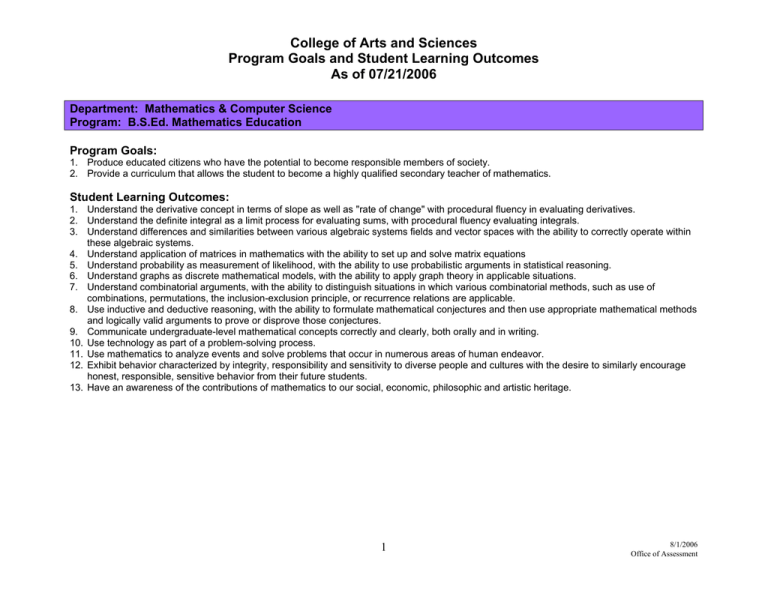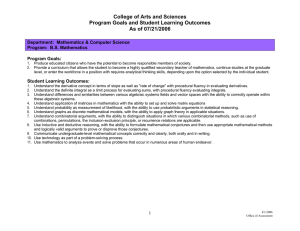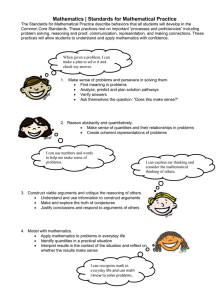College of Arts and Sciences Program Goals and Student Learning Outcomes
advertisement

College of Arts and Sciences Program Goals and Student Learning Outcomes As of 07/21/2006 Department: Mathematics & Computer Science Program: B.S.Ed. Mathematics Education Program Goals: 1. Produce educated citizens who have the potential to become responsible members of society. 2. Provide a curriculum that allows the student to become a highly qualified secondary teacher of mathematics. Student Learning Outcomes: 1. Understand the derivative concept in terms of slope as well as "rate of change" with procedural fluency in evaluating derivatives. 2. Understand the definite integral as a limit process for evaluating sums, with procedural fluency evaluating integrals. 3. Understand differences and similarities between various algebraic systems fields and vector spaces with the ability to correctly operate within these algebraic systems. 4. Understand application of matrices in mathematics with the ability to set up and solve matrix equations 5. Understand probability as measurement of likelihood, with the ability to use probabilistic arguments in statistical reasoning. 6. Understand graphs as discrete mathematical models, with the ability to apply graph theory in applicable situations. 7. Understand combinatorial arguments, with the ability to distinguish situations in which various combinatorial methods, such as use of combinations, permutations, the inclusion-exclusion principle, or recurrence relations are applicable. 8. Use inductive and deductive reasoning, with the ability to formulate mathematical conjectures and then use appropriate mathematical methods and logically valid arguments to prove or disprove those conjectures. 9. Communicate undergraduate-level mathematical concepts correctly and clearly, both orally and in writing. 10. Use technology as part of a problem-solving process. 11. Use mathematics to analyze events and solve problems that occur in numerous areas of human endeavor. 12. Exhibit behavior characterized by integrity, responsibility and sensitivity to diverse people and cultures with the desire to similarly encourage honest, responsible, sensitive behavior from their future students. 13. Have an awareness of the contributions of mathematics to our social, economic, philosophic and artistic heritage. 1 8/1/2006 Office of Assessment




